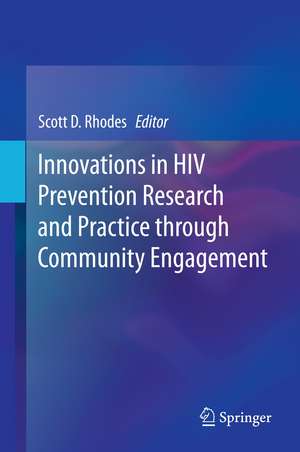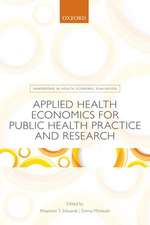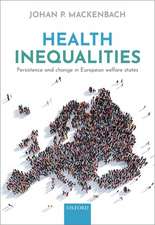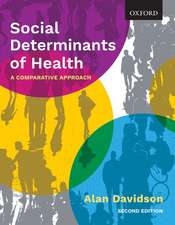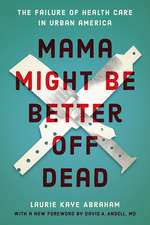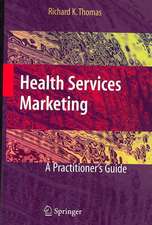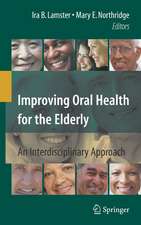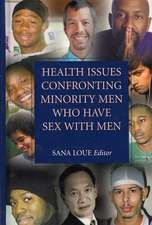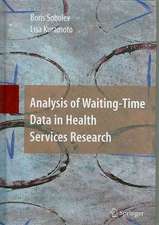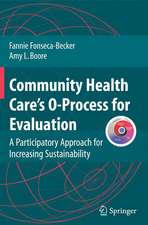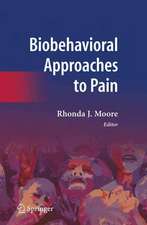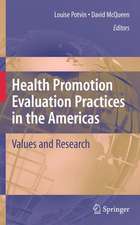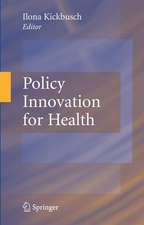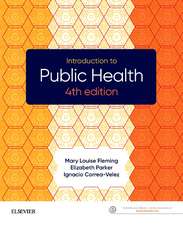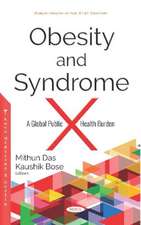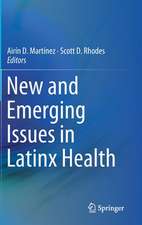Innovations in HIV Prevention Research and Practice through Community Engagement
Editat de Scott D. Rhodesen Limba Engleză Hardback – 15 iul 2014
The work documented in Innovations in HIV Prevention Research and Practice through Community Engagement spotlights the effectiveness of community involvement to reduce HIV infections in the United States. This timely resource introduces the concepts of community engagement, partnership, and community-based participatory research (CBPR). Contributors provide detailed examples of these concepts in which diverse research partners blend their unique insights and skills to arrive at an authentic understanding of phenomena and inform the translation of best practices and processes to enhance equity in HIV prevention and treatment. Equitable interactive collaboration is central to these efforts, in which community members and representatives from organizations, the scientific and medical sectors, and other relevant agencies nurture long-term health improvement through sustained teamwork. Challenges and barriers to effective engagement are identified, as are characteristics of successful partnerships. Included in the book:
- Details of a multigenerational HIV prevention intervention in a rural southeastern community.
- The challenges and successes of developing, implementing, and evaluating an intervention for higher-risk predominately heterosexual black men in college.
- The history of gay community involvement in HIV prevention and its contributions to the theory and current practice of engagement.
- Next steps in the integration of HIV-related policy change and research.
- Community engagement within American Indian communities.
- Keys to sustaining a CBPR partnership to prevent HIV within ethnic, sexual, and gender minority communities.
“Community engagement and knowledge continue to be essential to prevent HIV infections. This book is a compilation of the state-of-the-science of engagement and delves deeper into the meaning and utilization of community-based participatory research, with implications that reach beyond the HIV epidemic to public health and medicine in general.”
- Laura C. Leviton, PhD, Senior Advisor for Evaluation, Robert Wood Johnson Foundation, Princeton, NJ
| Toate formatele și edițiile | Preț | Express |
|---|---|---|
| Paperback (1) | 715.00 lei 6-8 săpt. | |
| Springer – 3 sep 2016 | 715.00 lei 6-8 săpt. | |
| Hardback (1) | 721.96 lei 6-8 săpt. | |
| Springer – 15 iul 2014 | 721.96 lei 6-8 săpt. |
Preț: 721.96 lei
Preț vechi: 759.96 lei
-5% Nou
Puncte Express: 1083
Preț estimativ în valută:
138.15€ • 147.73$ • 115.18£
138.15€ • 147.73$ • 115.18£
Carte tipărită la comandă
Livrare economică 17 aprilie-01 mai
Preluare comenzi: 021 569.72.76
Specificații
ISBN-13: 9781493908998
ISBN-10: 1493908995
Pagini: 280
Ilustrații: XVI, 264 p. 10 illus.
Dimensiuni: 155 x 235 x 21 mm
Greutate: 0.57 kg
Ediția:2014
Editura: Springer
Colecția Springer
Locul publicării:New York, NY, United States
ISBN-10: 1493908995
Pagini: 280
Ilustrații: XVI, 264 p. 10 illus.
Dimensiuni: 155 x 235 x 21 mm
Greutate: 0.57 kg
Ediția:2014
Editura: Springer
Colecția Springer
Locul publicării:New York, NY, United States
Public țintă
ResearchCuprins
Authentic community engagement and community-based participatory research for public health and medicine.- HIV prevention in a rural community: Multigenerational community engagement.-Preventing HIV among black men in college using a CBPR approach.- Gay community involvement in prevention: Where we have been, where we are, and where we should be going.- HIV prevention interventions with adolescents: Innovations and challenges in partnerships across the integrated transitions model.- Community engagement and HIV prevention with American Indian communities: Working with the whole person.- Applying a CBPR approach to prevent HIV within ethnic, sexual, and gender minority communities: A partnership’s successes with sustainability.- Community involvement in policy interventions.- Communities and technology: Enhancements in HIV prevention research and practice among youth and young adults.- Employment as a social determinant of health: An urban partnership’s experience with intervention development and implementation using CBPR.-Dissemination, implementation, and adaptation of evidence-based behavioral HIV prevention interventions through community engagement: The CDC experience.
Recenzii
From the book reviews:
“Scott Rhodes has assembled an interesting collection of articles that illustrate the advantages of community-based participatory research (CBPR) aimed at reducing the rate of human immunodeficiency virus (HIV) infection. … it includes excellent sections that illustrate the steps needed for and benefits of true community engagement in research. … This book will speak to public health and medical investigators who are ready to commit themselves to understanding the importance of and details required to work in partnership with community members.” (Judy Levison, Clinical Infectious Diseases, January, 2015)
“Scott Rhodes has assembled an interesting collection of articles that illustrate the advantages of community-based participatory research (CBPR) aimed at reducing the rate of human immunodeficiency virus (HIV) infection. … it includes excellent sections that illustrate the steps needed for and benefits of true community engagement in research. … This book will speak to public health and medical investigators who are ready to commit themselves to understanding the importance of and details required to work in partnership with community members.” (Judy Levison, Clinical Infectious Diseases, January, 2015)
Notă biografică
Scott D. Rhodes, PhD, MPH, CHES, is a public health scientist, whose research focuses on the integration of community development and health promotion and disease prevention interventions in both rural and urban communities. Specifically, his research explores sexual health; HIV and sexually transmitted disease (STD) prevention; and health disparities among vulnerable communities. Dr. Rhodes has experience working with Latino communities; urban African American adolescents; persons living with HIV and AIDS; men of color; self-identified gay and bisexual men; and men who have sex with men (MSM). Dr. Rhodes has extensive experience in community-based participatory research (CBPR); the design, implementation, and evaluation of HIV prevention interventions, community capacity development, and environmental and policy change; the application of behavioral theory; photovoice as a methodology of participatory action research (PAR); lay health advisor approaches; the exploration of sociocultural determinants of health; and internet research, including data collection, intervention delivery, and evaluation.
Textul de pe ultima copertă
HIV continues to be a profound challenge facing communities nationally and internationally. Until a vaccine or a cure is found, prevention remains a most crucial line of defense. However, the successes made to reduce exposure and transmission have not benefited all communities equally. HIV continues to affect vulnerable communities, and HIV-related health disparities are growing.
The work documented in Innovations in HIV Prevention Research and Practice through Community Engagement spotlights the effectiveness of community involvement to reduce HIV infections in the United States. This timely resource introduces the concepts of community engagement, partnership, and community-based participatory research (CBPR). Contributors provide detailed examples of these concepts in which diverse research partners blend their unique insights and skills to arrive at an authentic understanding of phenomena and inform the translation of best practices and processes to enhance equity in HIV prevention and treatment. Equitable interactive collaboration is central to these efforts, in which community members and representatives from organizations, the scientific and medical sectors, and other relevant agencies nurture long-term health improvement through sustained teamwork. Challenges and barriers to effective engagement are identified, as are characteristics of successful partnerships. Included in the book:
“Community engagement and knowledge continue to be essential to prevent HIV infections. This book is a compilation of the state-of-the-science of engagement and delves deeper into the meaning and utilization of community-based participatory research, with implications that reach beyond the HIV epidemic to public health and medicine in general.”
- Laura C. Leviton, PhD, Senior Advisor for Evaluation, Robert Wood Johnson Foundation, Princeton, NJ
The work documented in Innovations in HIV Prevention Research and Practice through Community Engagement spotlights the effectiveness of community involvement to reduce HIV infections in the United States. This timely resource introduces the concepts of community engagement, partnership, and community-based participatory research (CBPR). Contributors provide detailed examples of these concepts in which diverse research partners blend their unique insights and skills to arrive at an authentic understanding of phenomena and inform the translation of best practices and processes to enhance equity in HIV prevention and treatment. Equitable interactive collaboration is central to these efforts, in which community members and representatives from organizations, the scientific and medical sectors, and other relevant agencies nurture long-term health improvement through sustained teamwork. Challenges and barriers to effective engagement are identified, as are characteristics of successful partnerships. Included in the book:
- Details of a multigenerational HIV prevention intervention in a rural southeastern community.
- The challenges and successes of developing, implementing, and evaluating an intervention for higher-risk predominately heterosexual black men in college.
- The history of gay community involvement in HIV prevention and its contributions to the theory and current practice of engagement.
- Next steps in the integration of HIV-related policy change and research.
- Community engagement within American Indiancommunities.
- Keys to sustaining a CBPR partnership to prevent HIV within ethnic, sexual, and gender minority communities.
“Community engagement and knowledge continue to be essential to prevent HIV infections. This book is a compilation of the state-of-the-science of engagement and delves deeper into the meaning and utilization of community-based participatory research, with implications that reach beyond the HIV epidemic to public health and medicine in general.”
- Laura C. Leviton, PhD, Senior Advisor for Evaluation, Robert Wood Johnson Foundation, Princeton, NJ
Caracteristici
Focuses on some of the most innovative work bringing together community engagement and HIV prevention science Examines community engagement approaches and their potential for other populations and other health disparities, beyond HIV/AIDS Chapters co-authored by community partners and researchers provide real-world intervention experiences from rigorous research ? Includes supplementary material: sn.pub/extras
